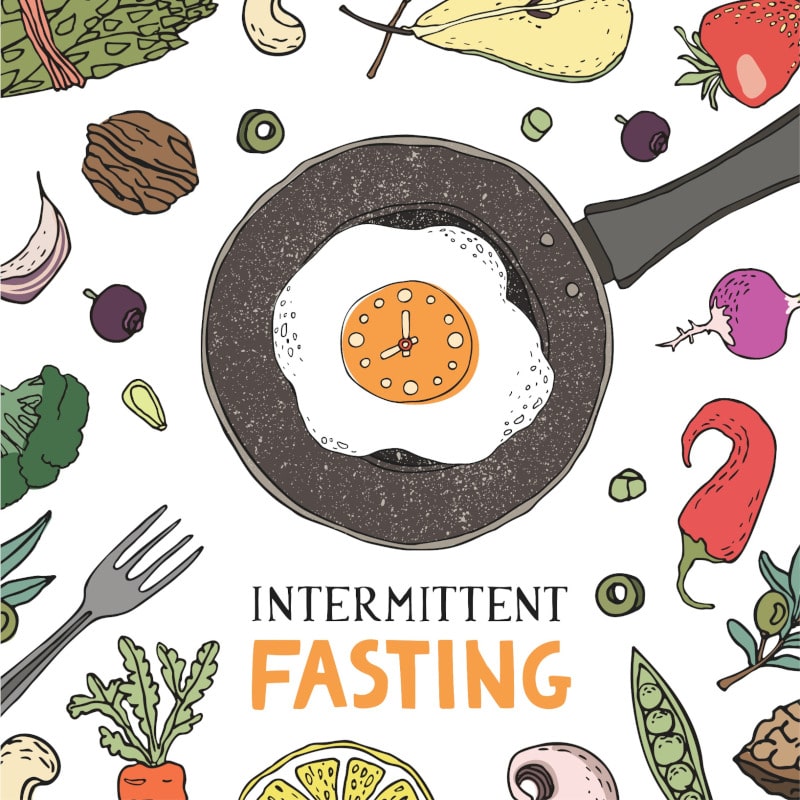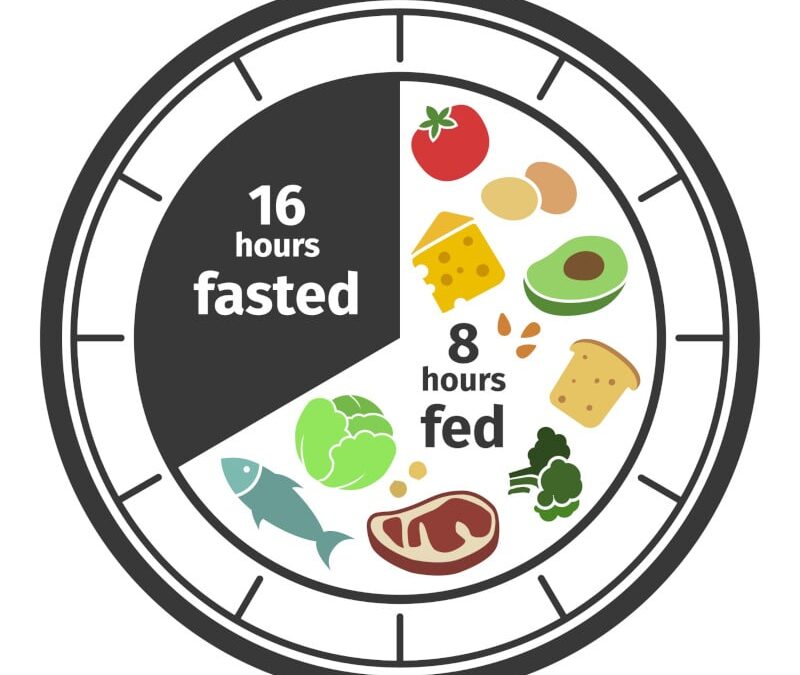Intermittent fasting has become very popular in recent years, and you have probably heard about it or even considered trying it. But before you do, it is essential to understand how intermittent fasting works, what effects it has on your body and who should avoid it.
If your goal is to improve your health and you don’t know where to start, in this article from PlanEAT, the Nutrition APP, we explain how intermittent fasting works and how you can incorporate it properly into your routine. In addition, we explore its benefits, when it is recommended, and in which cases it is best to avoid it.
Contenido
What is Intermittent Fasting?
Intermittent fasting is a dietary technique that alternates periods of fasting and eating. In other words, it involves stopping eating during certain times of the day, which gives the digestive system a rest. During this time without food, the body begins to eliminate toxins and activate cleansing mechanisms that promote health.

It is important to note that in order to understand how intermittent fasting works, it is essential to know that it is not a restrictive diet in terms of what to eat, but when to eat.
What can be consumed during fasting?
During the fasting hours, you can drink calorie-free liquids, such as:
- Water (you can add lemon or mint for flavour).
- Infusions.
- Broths (vegetable or chicken).
- Coffee or tea, although you should bear in mind that they are stimulants and not everyone tolerates them well.
Types of Intermittent Fasting
As we delve deeper into how intermittent fasting works, it is essential to know the different types of fasting that can be practised. Depending on your lifestyle, some types of fasting may be more suitable than others.
12-hour fasting
This is one of the most common and easiest fasts to incorporate into your daily routine. It involves fasting for 12 hours, something many people do without realising it. For example, eating dinner at 8pm and breakfast at 8am. This type of fasting is ideal for beginners and can be practised every day.
16-hour fasting
In this case, the fasting time is extended to 16 hours and you only eat during an 8-hour window. A common example is to eat your last meal at 3pm and not eat again until breakfast the next day. This fast is useful for those looking to lose weight or reduce daily caloric intake.
24-hour fasting
This type of fasting involves not eating anything for 24 hours, which can be challenging, especially for those suffering from anxiety or stress. It is usually practised once a week.
It is important to understand how intermittent fasting works so that fasting periods are not extended too long. If fasting is extended for more than 24 hours, the body may start to burn muscle instead of fat, which slows down the metabolism.
How does Intermittent Fasting affect metabolism?
One of the great myths surrounding fasting is that it slows down the metabolism, but this is not true if done in a controlled manner. When we practice intermittent fasting, the body does not slow down its energy expenditure in short fasts. In fact, this method helps to improve fat burning and optimise the use of energy reserves.
However, if fasting periods are excessively long, the body may resort to breaking down muscle mass for energy, which is not recommended. It is therefore essential to understand how intermittent fasting works before it is inappropriately practised.
Benefits of Intermittent Fasting
Now that we understand how intermittent fasting works, it’s time to explore the benefits that this method can offer when done correctly.

1. Increased Metabolism
When you fast, your metabolism speeds up. The body changes its energy source. At first, it uses glucose, but after a few hours, it begins to burn fatty acids and ketone bodies, which increases resistance to oxidative stress and reduces inflammation.
2. Strengthens the Immune System
Fasting stimulates a process called autophagy, in which cells break down and recycle their damaged components. This reduces inflammation and strengthens the body’s defences.
3. Improves Insulin Sensitivity
Intermittent fasting also helps regulate blood glucose, which improves insulin sensitivity and reduces triglyceride levels, blood pressure and heart rate. This is a key benefit, especially for people at risk of developing type 2 diabetes.
4. Preserves Muscle Mass
Unlike other methods that promote weight loss, intermittent fasting helps maintain muscle mass. During periods of fasting, the body prioritises the burning of carbohydrates and fats before turning to protein, which protects muscle.
5. Cognitive benefits
Intermittent fasting may have positive effects on cognitive function and memory. Some studies suggest that it may help prevent neurodegenerative diseases such as Alzheimer’s by improving the health of neurons and reducing the risk of plaque build-up in the brain.
6. Decreased Food Cravings
Fasting promotes better hormonal balance by increasing sensitivity to leptin, the satiety hormone, and regulating levels of ghrelin, the hunger hormone. This helps control food cravings and improves appetite control.
Contraindications of Intermittent Fasting
Although it is a method with multiple benefits, it is important to note in how intermittent fasting works that not everyone should practise it.
1. Eating disorders
People with a history of eating disorders should avoid fasting, as it can aggravate psychological problems related to the perception of the body and food.
2. Pregnant or breastfeeding women
Fasting is not recommended for pregnant or breastfeeding women, as it can affect both mother and baby, disrupting foetal development and milk production.
3. Insulin-dependent diabetes
Although intermittent fasting can improve glucose regulation, people with insulin-dependent diabetes should practice it only under medical supervision to avoid dangerous imbalances in their blood sugar levels.
4. People with Gastritis or Reflux
Those with digestive problems such as gastritis or gastro-oesophageal reflux may find their symptoms worsen when they stop eating for long periods. In these cases, it is best to treat the underlying condition first before attempting a fast.
Intermittent fasting is a powerful tool for improving metabolic health, the immune system and glucose regulation, as long as it is done in a controlled and appropriate manner. Knowing how intermittent fasting works is essential to reap the benefits without compromising your health.

If you decide to try this method, make sure you do it gradually and in a personalised way, adapting fasting times to your lifestyle and needs. As always, it is important to consult with a health professional before beginning any significant changes to your diet or daily routine.
Download our free Nutrition APP, PlanEAT, to access all the information you need, personalised diets and much more!

